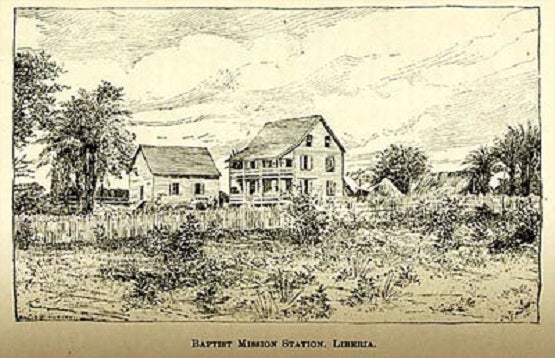Judy Moore: Who was John Day Jr.? A look at a founder of Liberia
Published 12:17 pm Thursday, October 21, 2021
|
Getting your Trinity Audio player ready...
|
What if you were a people who were brought to this country, through no fault of your own, and were told to go back to where you came from? African Americans in the past have heard that tune. A desire to move to a free society where African Americans could prosper as well as bring Christianity to the masses were the goals of John Day Jr., as to why he helped to colonize Liberia. Let’s start at the beginning to get the full picture of Day’s story.
John Day Jr. was born in 1797 to parents John Day Sr. and Mourning Stewart in Hicks Ford (now Emporia), Virginia. He had a younger brother Thomas. They were free Blacks and the Day children were educated in a manner unheard of for free Blacks in the South. John was extremely literate and well educated for an 18th century free African American man. John Jr. learned the business of woodworking from his father a master craftsman in cabinetmaking.
Eventually, he moved to Milton, North Carolina where he purchased property and established a cabinetmaking business. John Day Jr. developed a strong religious faith and although baptized into the Baptist faith in 1820, he was given the opportunity to preach in a Methodist church by a minister named Reverand Gardner. In 1821 John Jr. became a licensed preacher using money from his business to pursue his religious studies with Abner Wentworth Clopton.
While serving in a Baptist church John Jr. ran into difficulties when he wanted to travel to Haiti as a missionary, which he felt a divine calling to do but, unfortunately, he got little or no support from fellow Baptists, so consequently, he decided to turn his attention to Liberia. John Jr. believed that African Americans could find more opportunities as free people in Liberia. Moreover, it was a chance to spread Christianity to the West Africans. With the support of the American Colonization Society (ACS) John Jr. relocated in 1830 with his wife Polly and their four children to Liberia. Sadly, Polly and the children died after arriving in the country.
Nevertheless, John Jr. dedicated himself to the Grand Bassa people of Liberia as a missionary and teacher with the support of the American and Southern Baptist Conventions. He spent decades appreciating their culture. He also served the people of Liberia as a Supreme Court Chief Justice as well as establishing a school named Day’s Hope.
When it comes to the colonization of a society, from my point of view, you need to be mindful of how you go about the process. When you go into a community you want to leave it better than you found it. That means learning and appreciating the culture that already exists there whether you agree with all aspects or not; there are facets of American culture that some might find questionable.
Once you understand the people whom you interact with, you can meet them where they are and present your ideas. The native people can have a profound effect on you and the life you want to build for yourself and the community you serve. John Jr. knew that and succeeded in that regard.
John Jr. believed in a free society for African Americans to experience equality of living that in America during the 1800s could not be truly achieved. With his faith, a vision for a free and equal society for African Americans and determination, that goal became a reality.
Judy Moore is a tour guide with The Central High Museum living in Wylliesburg. She can be reached at v5agabond2@gmail.com.


